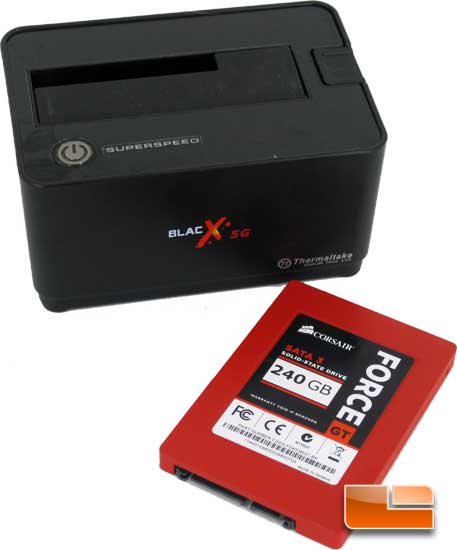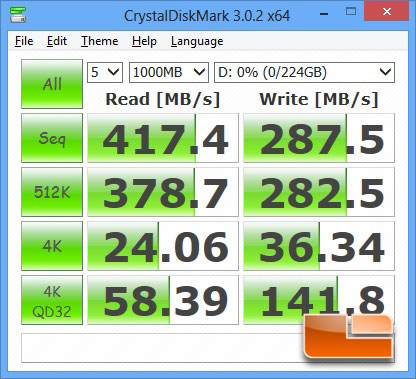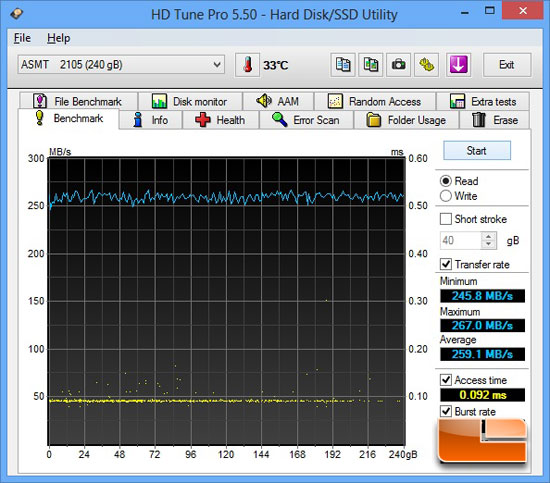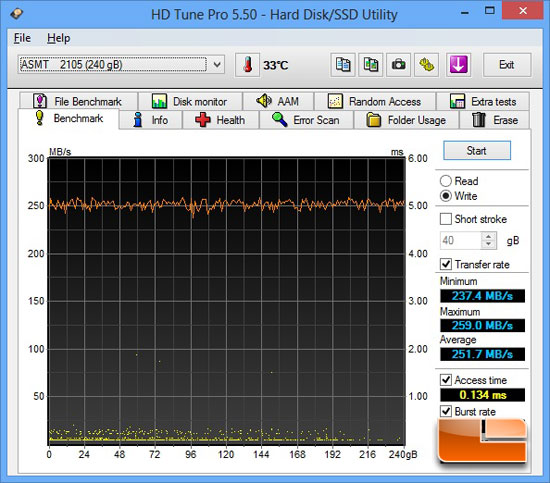ASUS Rampage IV Black Edition Intel X79 Motherboard Review
Intel Z87 SuperSpeed USB 3.0 Performance Testing

There are a number of different Super Speed USB 3.0 host controllers out there. In order to know which ones perform the best we run a series of tests that will put the controller through the ringer and see how it comes out on the other side. Each of our motherboards uses a different Super Speed USB 3.0 controller and you can find the below.
CrystalDiskMark is a small benchmark utility for drives and enables rapid measurement of sequential and random read/write speeds. Note that CDM only supports Native Command Queuing (NCQ) with a queue depth of 32 (as noted) for the last listed benchmark score. This can skew some results in favor of controllers that also do not support NCQ.

Testing of the USB3 was done using the “Thermaltake BlacX 5G Hard Drive Docking Station . The drive used was an Corsair Force GT 240Gb SSD.

Benchmark Results: The Intel X79 platforms rely on third party USB 3.0 controllers while the Z87 platforms utilize a controller on the Intel Z87 chipset. The Z87 chipset is considerably faster than either of the X79 controllers. The ASUS Rampage IV Black Edition was able to hit a sequential read of 295.9MB/s and sequential write of 291.7MB/s. The MSI was ~3.5MB/s faster during the sequential read and nearly 100MB/s slower on the sequential write.
HD Tune Pro 5.00 is an extended version of HD Tune which includes many new features such as write benchmark, secure erasing, AAM setting, folder usage view, disk monitor, command line parameters and file benchmark.
Intel Z77 SuperSpeed USB 3.0 HD Tune 5.50 Read Benchmark Results

Intel Z77 SuperSpeed USB 3.0 HD Tune 5.50 Write Benchmark Results

Testing of the USB3 was done using the “Thermaltake BlacX 5G Hard Drive Docking Station . The drive used was an Corsair Force GT 240Gb SSD.

Benchmark Results: The ASUS Rampage IV Black Edition was able to average 187MB/s read and 179.8MB/s write in HD Tune. Not quite up to the same level as the Z87 boards, but faster than the MSI Big Bang XPower II.
